SUMMARY
This is AI generated summarization, which may have errors. For context, always refer to the full article.
![[OPINION] The politics of rice – and managing perception](https://www.rappler.com/tachyon/2023/09/politics-rice-september-14-2023.jpg)
After initially expressing surprise over President Ferdinand Marcos Jr.s’ order setting a price ceiling on rice, Finance Secretary Benjamin Diokno issued a follow-up statement expressing the economic managers’ full support for the order.
The finance secretary’s flip-flop came just days after Malacañang fired one of Diokno’s undersecretaries for posting a graph on supply and demand on her Facebook page. It was considered by the Palace as a direct criticism of the price cap order, not only an act of insubordination but a challenge to the wisdom of the President.
The executive secretary then issued a statement branding the former undersecretary, Cielo Magno, an economic professor at the University of the Philippines (UP) before joining the finance department, as a critic of the President even before joining his administration.
Magno, who has returned to teaching at UP, maintained that speaking up, or in this case, posting a graph on Facebook that only students of economics will readily understand, was the right thing to do.
In an interview, Magno warned that the price cap could lead to a supply shortage as it would encourage hoarding. Unless the cap is lifted immediately, the country could experience rice rationing. And the last time government had to ration rice, she reminded the public, was during the term of the President’s father.
Weakened clout
Magno’s swift removal is yet another example of Malacañang’s merciless and surgical approach to crisis management. But firing a contrarian undersecretary might not be enough.
At most, the exaggerated Palace response to a cryptic FB post only drew attention to dysfunctional policy decision-making at the highest level of government (Diokno had claimed the economic team was not consulted by the President before he issued the order) and highlights the political volatility of the rice issue.
As it tries to find relief for consumers burdened by the high prices of rice and other prime commodities, Malacañang probably realizes that it is dealing with a potentially divisive gut issue that could weaken the leverage and political advantage historically enjoyed by the incumbent during mid-term elections.
In 2018, during the Duterte administration, commercial rice was so expensive and the National Food Authority rice grew scarce that people had to line up for hours to buy cheap rice. Consumer optimism from October to December that year, as measured by the Bangko Sentral ng Pilipinas, was at 3.8%, a sharp drop from 8.7% from the previous year.
The rice crisis dented former president Rodrigo Duterte’s popularity. A Pulse Asia survey taken in September showed Duterte’s approval ratings dropping by 13% and his trust ratings by 15%, at that time his lowest since assuming the presidency in 2016. The survey was conducted when the rice crisis was top of mind and inflation was at 6.4%, the highest in nine years.
Yet public dissatisfaction did not translate into gains for the political opposition. The 2019 mid-term election was a rout, reducing the ranks of the opposition into a negligible minority in Congress and a spent, inconsequential force in national politics.
Frenemies
After a six-month decline, the country’s inflation rate rose to 5.3% in August, with rice as a major driver. Economists predict it could peak at 5.7% in September.
And while overall satisfaction with the administration remains high, a recent survey conducted by OCTA Research showed below majority satisfaction ratings – 34% – in fighting inflation and 36% in reducing poverty.
There are two factors that work in the President’s favor.
The first is time. The President and his Cabinet have more than a year before the 2025 mid-term election to find the right policy mix that would stabilize prices and mitigate its impact on key sectors.
The second is a decimated opposition. He has little to fear from the stragglers of the 2022 presidential campaign and what used to be the dominant Liberal Party.
But public criticism and disruptive actions of late have been emanating from the ranks of the administration coalition. And these have been far from restrained.
Duterte, who has opted to break from the traditional norm of former presidents refraining from criticizing their successors, has described as “daydreaming” Marcos Jr.s’ campaign promise of bringing down the price of rice to P20 per kilo. As expected, pro-Duterte and anti-Marcos personalities, bloggers and so-called influencers are echoing the former president’s indirect scolding of the incumbent.
The President’s older sister and perennial contrapelo, Senator Imee Marcos, also expressed dismay at the high prices of rice, even joking that their father would rise from the grave and declare martial law to keep prices down.
Birthday wish
On his birthday last September 13, the President was reported as wishing for an improved agriculture sector (“Maging maayos ang agrikultura”).
Fulfilling this wish is largely within the President’s hands. As chief executive and agriculture secretary, he can decide to put more government money in agriculture rather than, say, intelligence and confidential funds for his Vice President.
Substantial budgetary allocations for agriculture, and its expedient use, could spur productivity, bring investments, and produce jobs in the rural areas where poverty and unemployment are prevalent. It could help meet the growing demand for food and bring down food prices.
Meanwhile, relinquishing the agriculture portfolio would allow clearer focus on addressing and managing the diverse but interlocking concerns of the sector. Should things turn good, the President will be credited for providing the policy direction and for making a wise appointment. Should things turn bad, the public will have someone other than the President to blame.
For now, there are no clear indications that the rice issue is eroding the President’s popularity and his political base. The Marcos brand’s equity is holding. There is, as yet, no compelling need for a shift in communications direction.
The administration can, and is expected to, continue appealing for unity and if needed, sacrifice for the sake of the nation. Well-timed policy announcements on the rice issue will guarantee that the President dominates the news cycle. It will dictate the terms of public discourse. Online and media critics can be pushed out of the discourse and isolated.
Past glories, real or imagined, will be rolled out, reversals repackaged as wins, and small wins into major victories.
But a hungry stomach moves according to its own logic. In dealing with the issue of high prices, the President and his team must rely on a deft combination of perception management, hard-nosed governance, and political will, especially in dealing with cartels and smuggling syndicates.
There are limits to managing perception. Most of the time, the solution is political will and plain old hard work. – Rappler.com
The author is a former journalist and spokesman for former vice president Jejomar Binay. He is a government and political communications consultant. This article was first published in ourbrew.com.
2 comments
How does this make you feel?



![[ANALYSIS] How one company boosts farmer productivity inside the farm gate](https://www.rappler.com/tachyon/2024/06/bioprime-farmgate-farmer-productivity-boost.jpg?resize=257%2C257&crop=465px%2C0px%2C1080px%2C1080px)




![[WATCH] Bamban POGO scandal: There’s a bigger fish than Alice Guo](https://www.rappler.com/tachyon/2024/07/inside-track-tcard-bamban-pogo.jpg?resize=257%2C257&crop=435px%2C0px%2C1080px%2C1080px)
![[Vantage Point] China’s silent invasion of the Philippines](https://www.rappler.com/tachyon/2024/07/TL-china-silent-invasion-july-16-2024.jpg?resize=257%2C257&crop=318px%2C0px%2C720px%2C720px)



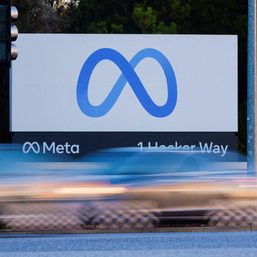


![[WATCH] In the Public Square with John Nery: The Marcoses’ three-body problem](https://www.rappler.com/tachyon/2024/04/pubsq-sq.jpg?resize=257%2C257&crop=390px%2C0px%2C1080px%2C1080px)
![[Newsstand] The Marcoses’ three-body problem](https://www.rappler.com/tachyon/2024/04/tl-marcoses-3-body-problem.jpg?resize=257%2C257&crop=451px%2C0px%2C1080px%2C1080px)
![[EDITORIAL] Kalaban mo ang mga senador na protektor ni Quiboloy](https://www.rappler.com/tachyon/2024/03/animated-quiboloy-kojc-senate-carousel.jpg?resize=257%2C257&crop=365px%2C0px%2C720px%2C720px)
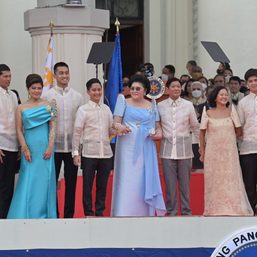
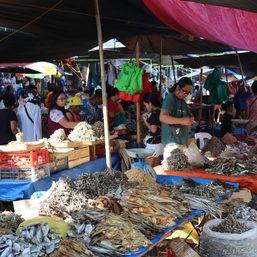







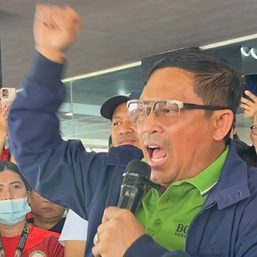
![[EDITORIAL] Apat na taon na lang Ginoong Marcos, ‘di na puwede ang papetiks-petiks](https://www.rappler.com/tachyon/2024/07/animated-bongbong-marcos-2024-sona-day-carousel.jpg?resize=257%2C257&crop=280px%2C0px%2C720px%2C720px)
![[In This Economy] Delulunomics: Kailan magiging upper-middle income country ang Pilipinas?](https://www.rappler.com/tachyon/2024/07/in-this-economy-upper-middle-income-country.jpg?resize=257%2C257&crop=421px%2C0px%2C1080px%2C1080px)

![[EDITORIAL] Marcos Year 2: Hilong-talilong](https://www.rappler.com/tachyon/2024/07/animated-bongbong-marcos-2nd-sona-carousel.jpg?resize=257%2C257&crop=136px%2C0px%2C720px%2C720px)
![[Newspoint] A fighting presence](https://www.rappler.com/tachyon/2024/07/thought-leaders-a-fighting-presence.jpg?resize=257%2C257&crop=441px%2C0px%2C1080px%2C1080px)
![[Newspoint] The Tañada legacy](https://www.rappler.com/tachyon/2024/07/newspoint-tanada-legacy.jpg?resize=257%2C257&crop=288px%2C0px%2C720px%2C720px)
![[Free to Disagree] Boomers, let go please](https://www.rappler.com/tachyon/2024/07/tl-boomers-let-go.jpg?resize=257%2C257&crop=286px%2C0px%2C720px%2C720px)


![[ANALYSIS] The political divorce rocking the Philippines](https://www.rappler.com/tachyon/2024/07/TL-duterte-marcos-china-US-feud-july-4-2024.png?resize=257%2C257&crop=303px%2C0px%2C720px%2C720px)
![[OPINION] A rebellion long overdue](https://www.rappler.com/tachyon/2024/06/mass-uprising-matrix-june-4-2024.jpg?resize=257%2C257&crop_strategy=attention)

![[EDITORIAL] Manigong Bagong Taon? Puwede na ang ‘masayang’ bagong taon](https://www.rappler.com/tachyon/2024/01/animated-2024-fearless-forecast-carousel.jpg?resize=257%2C257&crop_strategy=attention)
![[In This Economy] Runaway rice prices are making inflation higher than it needs to be](https://www.rappler.com/tachyon/2024/02/tl-rice-prices.jpg?resize=257%2C257&crop=560px%2C0px%2C720px%2C720px)
![[Vantage Point] When sugar turns sour: End users agonize from high prices](https://www.rappler.com/tachyon/2024/02/tl-sugar-turns-sour-February-6-2024.jpg?resize=257%2C257&crop_strategy=attention)

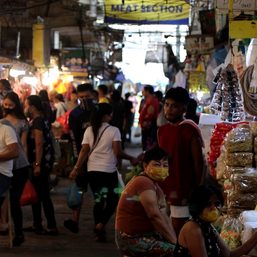



Thanks to Joey Salgado for his enlightening article on the politics of rice, “The politics of rice – and managing perception.” For the moment, the Marcos Disinformation machinery has been working at an excellent level so that even a hungry stomach will be swayed by it. The essence is that the control of the People’s minds can lead them to believe that they are not hungry at all. Think of President Marcos Jr. as a magician before a crowd of hungry audience. He creates “imaginary magical foods” and let his audience taste and consume them to their satisfaction. Until when this “deception” will be effective – depends on how President Marcos Jr. uses his “political will” and the “plain old hard work” of his subordinates. His political will is selective: it favors his relatives and campaign fund donors but fierce against those who are not. The “plain old hard work” of his subordinates are well rewarded provided they follow his narrative, but for nonconformists – the “exit” door immediately opens.
Thank you this feedback. An interesting point – that his political will is ‘selective.’